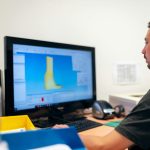The Current Landscape of UK Computing News
UK computing news overview today reflects a dynamic and rapidly evolving sector. Technology journalism in the UK primarily blends traditional reporting with digital innovation, emphasizing speed and accessibility. Major outlets continue to use straightforward news articles, but increasingly incorporate multimedia elements to engage audiences.
Coverage trends highlight a clear focus on emerging technology sectors, such as artificial intelligence, quantum computing, and cybersecurity. These areas generate significant interest due to their potential societal impact and business implications. Journalists frequently prioritize breakthrough stories from UK-based research institutions and startups, providing a localized perspective within a global context.
Also read : How Are Recent Advances in Quantum Computing Shaping the Future of UK Industries?
Leading platforms and key journalists have carved distinctive roles by delivering in-depth analysis alongside up-to-the-minute reports. Their work often bridges expert insights and the general public, making complex topics approachable. This ensures readers stay informed about evolving landscapes in computing and digital innovation.
In summary, UK computing news reflects a blend of thorough analysis and rapid reporting, with growing emphasis on emerging technologies. This approach enables readers to grasp both the current state and future directions of computing in the UK, with trusted sources serving as vital conduits of this information.
Also to discover : What Are the Emerging Trends Shaping the Future of Computing in the UK?
Impact of Artificial Intelligence on News Reporting and Content
Artificial intelligence is increasingly reshaping UK tech media, driving significant changes in how news is produced and consumed. AI automates routine tasks in news automation, such as generating initial article drafts or summarizing complex reports, which accelerates content creation while maintaining accuracy. This automation allows journalists to focus on deeper analysis and investigative reporting.
In newsroom workflows, AI-driven journalism introduces personalised content delivery systems. These systems tailor news feeds to individual preferences, enhancing reader engagement by providing relevant stories promptly. Editorial strategies also adapt, with teams relying on AI tools for efficient fact-checking and content verification, thereby improving the reliability of published material.
AI-powered fact-checking tools play a crucial role in verifying information against massive datasets in real-time, helping combat misinformation. This integration fosters trust in news sources amid an environment of rapid content dissemination.
Overall, artificial intelligence is not only streamlining operations but shaping the editorial focus and quality standards within UK computing news. By automating repetitive reporting and refining content accuracy, AI supports a more agile and trustworthy technology journalism landscape, meeting the evolving expectations of its audience.
The Influence of Quantum Computing on Industry and News Trends
Quantum computing represents a pivotal frontier in computing technology, poised to revolutionize industries with unprecedented processing power. UK technology news increasingly spotlight breakthrough research, such as advancements in qubit stability and algorithm optimization. These developments promise transformative impacts on sectors like pharmaceuticals, finance, and cryptography.
What makes quantum computing unique is its ability to process complex calculations exponentially faster than classical computers. This capacity enables solving problems once thought intractable, including molecular simulations for drug discovery and optimization of large-scale financial models. UK-based research institutions and startups feature prominently in stories covering these advancements, illustrating the nation’s growing role in this emerging field.
News coverage also explores the broader societal implications of quantum computing. Ethical considerations and security challenges, including quantum-resistant encryption, are frequent topics, reflecting public interest and the need for regulatory frameworks. As quantum technologies shift from experimental to practical applications, UK computing news will likely deepen coverage, driving awareness and understanding.
In essence, quantum computing provides fertile ground for evolving narratives within UK technology news, emphasizing innovation and its ripple effects across multiple industries and society. This focus aligns with emerging technology coverage trends already prevalent within UK computing news overview discussions.
Expanding Coverage with Internet of Things and Edge Computing
The Internet of Things (IoT) is swiftly becoming integral to both business operations and everyday life in the UK. UK computing news overview increasingly highlights how IoT devices—from smart home gadgets to industrial sensors—generate vast data streams, enabling smarter decision-making and automation. This expanding IoT presence necessitates comprehensive media coverage to dissect its multifaceted impact.
One challenge in IoT news reporting lies in explaining edge computing developments, where data processing occurs closer to devices rather than centralized clouds. This distributed approach reduces latency and bandwidth use, critical for real-time applications like automated vehicles or remote healthcare monitoring. Journalists must balance technical depth with accessibility when covering these complex systems.
Security and privacy concerns dominate IoT news narratives, as the proliferation of connected devices raises vulnerabilities to cyberattacks and data breaches. UK tech media frequently examine legislative responses and regulatory scrutiny aimed at protecting users. These topics resonate with readers wary of how IoT transformations affect personal and corporate data security.
In essence, IoT news coverage connects technological innovation with immediate societal and ethical considerations. By focusing on both Internet of Things advancements and edge computing challenges, UK computing journalism broadens its scope, illuminating the evolving digital ecosystem.
Evolving Storytelling Techniques and Audience Engagement
UK computing news overview increasingly reflects a shift towards multimedia journalism, incorporating immersive content formats like augmented reality (AR), virtual reality (VR), and interactive data visualisations. These tools enhance storytelling by making complex computing topics more accessible and engaging. For example, VR can simulate cybersecurity attack scenarios, offering readers an experiential grasp of threats that traditional articles struggle to convey.
Interactive news elements encourage active participation, allowing audiences to explore datasets or manipulate visualisations directly. This engagement deepens understanding while keeping content dynamic. UK technology journalism is adopting these innovations to cater to diverse preferences and learning styles, expanding beyond static text.
Social media and live streaming platforms also play critical roles in transforming audience interaction. Real-time Q&A sessions, live demos of emerging technology, and direct feedback loops foster a community feel around UK tech media. These channels help personalise news delivery, matching readers with tailored content based on interests and behaviour.
The future newsroom increasingly relies on future newsroom technologies that support personalised content curation and niche reporting. This evolution promises to refine how stories reach and resonate with readers, making UK computing news not just informative but also immersive and responsive to audience needs.
The Current Landscape of UK Computing News
UK computing news overview today reveals a sector marked by rapid transformation and expanding depth. Technology journalism continues to rely heavily on traditional reporting methods, such as factual news articles and expert interviews. However, there is a noticeable shift towards emerging technology coverage, reflecting growing public interest in sectors like artificial intelligence, quantum computing, and IoT.
The coverage is increasingly nuanced, balancing breakthrough scientific advancements with practical business and societal applications. This trend ensures that UK computing news serves both specialist audiences and general readers by highlighting relevant, real-world impacts of technology developments.
Prominent journalists and platforms anchor the industry by providing both comprehensive analysis and timely news updates. These trusted voices, often linked to established UK-based media outlets and technology-focused startups, act as essential conduits for disseminating accurate, up-to-date information. Their reporting often includes interviews with top researchers and industry experts, enhancing the credibility and context of stories.
In summary, the UK computing news landscape combines robust reporting traditions with adaptive approaches focused on emerging technologies, ensuring relevance and engagement amid a fast-evolving technological environment.


